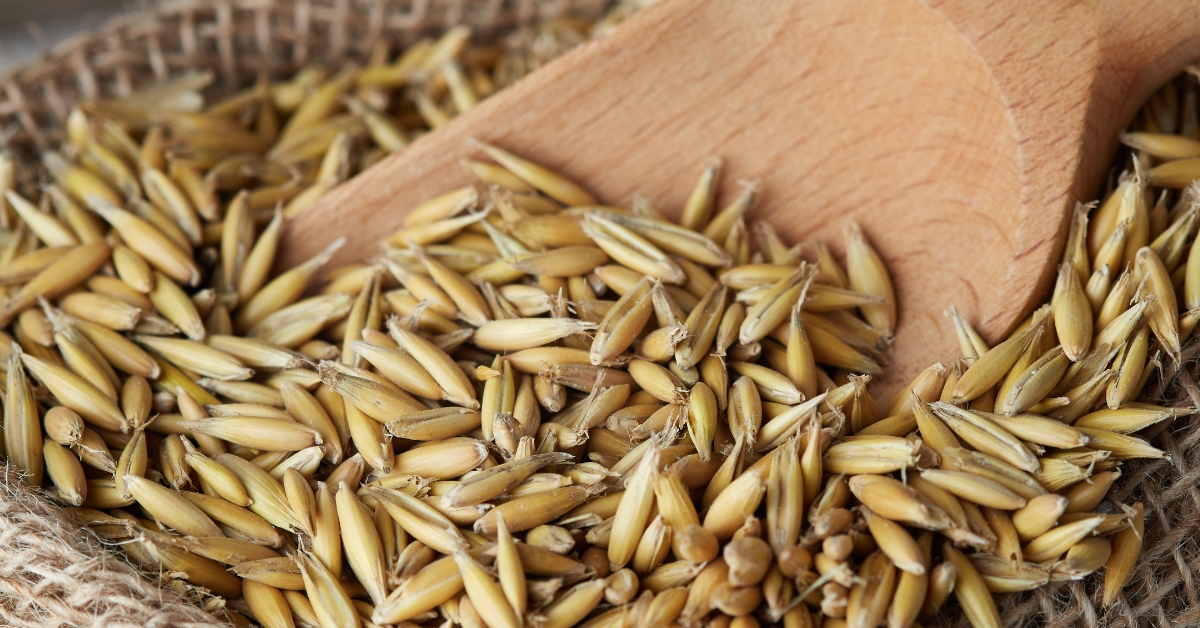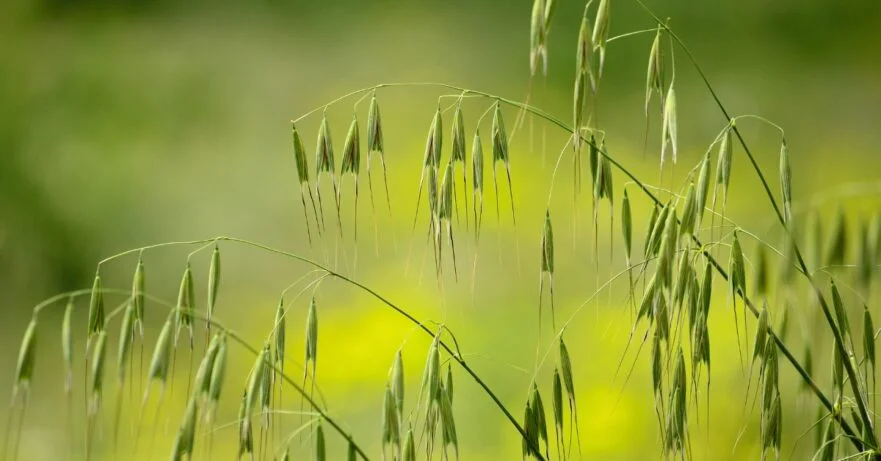In this monograph about oat:
📖 Introduction | 🌱 Botanical Description | 📜 Traditional Uses | 🔍 Phytochemistry | ✨ Applications and Uses | 🛡️ Safety Profile
📖 Introduction
Oats (Avena sativa) are a cereal grain widely recognized for their nutritional value and medicinal properties. They have been cultivated for thousands of years and are commonly used in both dietary and therapeutic contexts. Oats are renowned for their beneficial effects on heart health, digestive function, and skin conditions.
| English Name | Oat |
| Latin Name | Avena sativa |
| Parts Used | Grain, straw |
| Traditional Uses | Digestive health, skin conditions, stress relief |
| Herbal Actions | Demulcent, emollient, nervine, anti-inflammatory |
🌱 Botanical Description
Scientific Classification
Oats belong to the Poaceae family.
Physical Characteristics
Oats are characterized by their slender, erect stems, reaching heights up to 1.5 meters. The leaves are long and narrow, and the flowers are arranged in loose clusters called panicles. The edible part of the plant is the grain, encased in a hard husk.
Natural Habitat and Cultivation Details
Oats are native to temperate regions and thrive in cool, moist climates. They are commonly grown in North America, Europe, and Asia. Oats prefer well-drained soil and can be sown in both spring and fall for optimal growth.
📜 Traditional Uses
Historically, oats have been used both as a food source and for their medicinal properties. In traditional medicine, oat straw and grains were utilized to soothe skin conditions, promote relaxation, and support digestive health. Oats were also employed as a remedy for various inflammatory conditions.

🔍 Phytochemistry (Active Constituents)
Oats contain several key components that contribute to their health benefits:
- Beta-glucan: A soluble fiber known for its cholesterol-lowering and immune-modulating properties.
- Avenanthramides: Unique polyphenolic compounds with antioxidant and anti-inflammatory effects.
- Vitamins and minerals: Oats are a rich source of vitamins, such as B vitamins, and minerals, including magnesium, iron, and zinc.
✨ Applications and Uses
Oats are used in herbal medicine for:
- Cardiovascular health: Regular consumption of oats can help reduce cholesterol levels and improve heart health.
- Digestive health: The high fiber content aids in digestion and helps prevent constipation.
- Skin care: Oats are often used in topical applications to soothe and moisturize dry, irritated skin.
- Stress relief: Oat straw extracts are used to support nervous system health and promote relaxation.
The efficacy of Avena sativa in these applications is attributed to its rich composition of bioactive compounds that provide various health benefits.
🛡️ Safety Profile
Oats are generally considered safe for most people when consumed as part of a balanced diet.
However, individuals with celiac disease or gluten sensitivity should use caution, as oats can be contaminated with gluten during processing.
Potential side effects are minimal but may include digestive discomfort in sensitive individuals.
As with any herbal supplement, it is recommended to use oats under the guidance of a healthcare provider, especially if there are any underlying health conditions.
📃 Related Posts
🌱 Related Herbs

